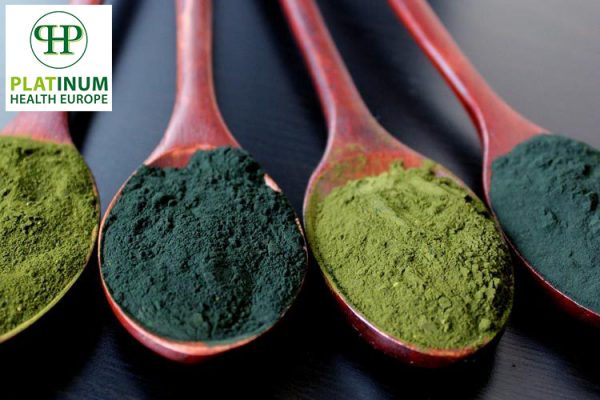Your mast cells are part of your immune system. Mast cells grow in your bone marrow, gastrointestinal tract, skin, and airways. These cells help your body fight off infection. They are also the cells that react when there is an allergen or foreign substance found in your body.
Mast cells release chemicals called mediators. One of these chemicals is histamine, which helps you fight off an allergy. Mast cells are beneficial in helping a healthy person to protect and heal their body. Mast cells release chemicals that cause symptoms like expanding blood vessels, itchy skin, swollen skin, mucus buildup, tightened airways, wheezing, headaches, and in severe cases anaphylaxis. Mast cell triggers can be things like infections, medications, fragrances, exercise, stress, food, or normal allergens like dust, pollen, or pet dander.
Mast cells are an important part of your body. They help your body fight off allergy attacks, and help your immune system keep your body strong. Mast cell activation syndrome is when the mast cells in your body release mediators too frequently and too often without any exposure to a certain allergen. This means your body is reacting as though you are having an allergic reaction, but there is no allergen. This can cause diagnosing this condition extremely hard. There seems to be no cause for this condition. There is also no link to any allergies or other diseases and mast cell activation syndrome, MCAS.
Signs & Symptoms
When you have MCAS your cells release mediators too often with no cause. This can cause your body to have allergic reaction symptoms all the time. Symptoms can also come and go almost in a cycle. The release of mediators in your body can affect the skin, nervous system, heart, or gastrointestinal tract. Usually with MCAS you have symptoms that affect one or more system in your body. Symptoms can range from mild to life threatening.
- Symptoms that can affect your skin are hives, itching, flushing, sweating, swelling, or a rash.
- Eye symptoms include irritation to the eyes, itchy eyes, or watery eyes.
- You may suffer from an itching, or running nose.
- Your mouth or throat can itch, or you may have swelling in your tongue, mouth, or throat.
- Difficulty breathing or wheezing, low blood pressure, rapid heart rate are symptoms that can affect your lungs or heart.
- Gastrointestinal symptoms are cramping, nausea, diarrhea, or abdominal pain.
- Nervous system symptoms are headache, confusion, or fatigue.
- In severe cases MCAS can cause anaphylactic shock. Symptoms of this are rapid drop in blood pressure, lightheadedness, weak pulse, trouble breathing, confusion, or loss of consciousness.
There are a few key signs of MCAS. One is that your symptoms come and go almost as though they are in a cycle. You have symptoms of an allergic reaction in more than one system in your body. The third is that you have a dramatic change in symptoms. The most common symptoms of MCAS are swelling, itching, rashes, inflammation, vomiting, headaches, chronic pain, flushing, diarrhea, constipation, fast heart beat, low blood pressure, fatigue, fainting, sweats, and abdominal pain.
Diagnosis
Diagnosing MCAS can be extremely difficult. Symptoms can look like a number of other conditions. It can take a lot of time to figure out a diagnosis. Especially if you don’t know what triggers could be bringing on the attacks or symptoms. There are three main things your doctor should look for if they suspect MCAS. The first one being if you have symptoms in more than one system that appear to be chronic. The second thing is they will check for high levels of tryptase, histamine, and prostaglandins in your blood. The third thing is your doctor will see if you get better after using medications that block the chemicals released by the mast cells, such as an antihistamine.
Treatment
There is no cure for MCAS. Symptoms can be managed. You will want to try and identify triggers if possible. Triggers can be hard because there is such a range of things that can cause your mast cells to overreact. Medications are the best line of treatment for MCAS. H1 or H2 antihistamines can help, you may have to take one of these daily. Aspirin can help with inflammation. Mast cell stabilizer medications help to prevent the release of mediators. Antileukotrienes are a medication that block leukotrienes in the body. Corticosteroids can also be used but are usually only used for a last resort treatment. If you suffer from anaphylactic shock symptoms your doctor may want you to carry around an epinephrine auto injector in case you have difficulty breathing. Changes in diet may help if you have triggers in foods. Eating a low histamine diet can help you to not have too much histamine in your body. High histamine foods are hard cheese, fish, spinach, sausage, or alcohol. A low FODMAP diet may also benefit some people, this diet eliminates certain kinds of sugars.
MCAS can affect your daily life, and your quality of life. You can have these allergy-like symptoms present themselves chronically. A lot of people with MCAS suffer from anaphylaxis as well, which can be life threatening. Proper treatment can help manage your symptoms and increase your quality of life back to normal.
Mast Cell Activation Syndrome - your body is having an allergic reaction but there is no allergen! #HealthSurgeon
READ MORE: Foods That Affect Mucus Production
Source:
https://www.aaaai.org/conditions-treatments/related-conditions/mcas#:~:text=Idiopathic%20Mast%20Cell%20Activation%20Syndrome,are%20released%20during%20those%20episodes.
https://www.webmd.com/allergies/what-is-mast-cell-activation-syndrome
https://www.healthline.com/health/mast-cell-activation-syndrome#outlook
https://primaryimmune.org/resources/news-articles/mast-cell-activation-disease-diagnosis-can-reveal-pi









